China hypes up Russia’s invasion of Ukraine and voices support
As Ukraine braces for impact from Russia, China has weighed in – and the two superpowers are saying one thing but doing another.
China has spoken out in support of Russia’s impending invasion of Ukraine, insisting the “outdated” NATO alliance is the true cause of the crisis.
Foreign Minister Wang Yi told US Secretary of State Antony Blinken that Russia’s “reasonable security concerns should be taken seriously and resolved”.
He did not refer to European and Ukrainian security concerns over Moscow’s 100,000 troops, heavy tanks, armoured vehicles, combat aircraft and warships assembling on their borders.
“We call on all parties to stay calm and refrain from doing things that agitate tensions and hype up the crisis,” he said.
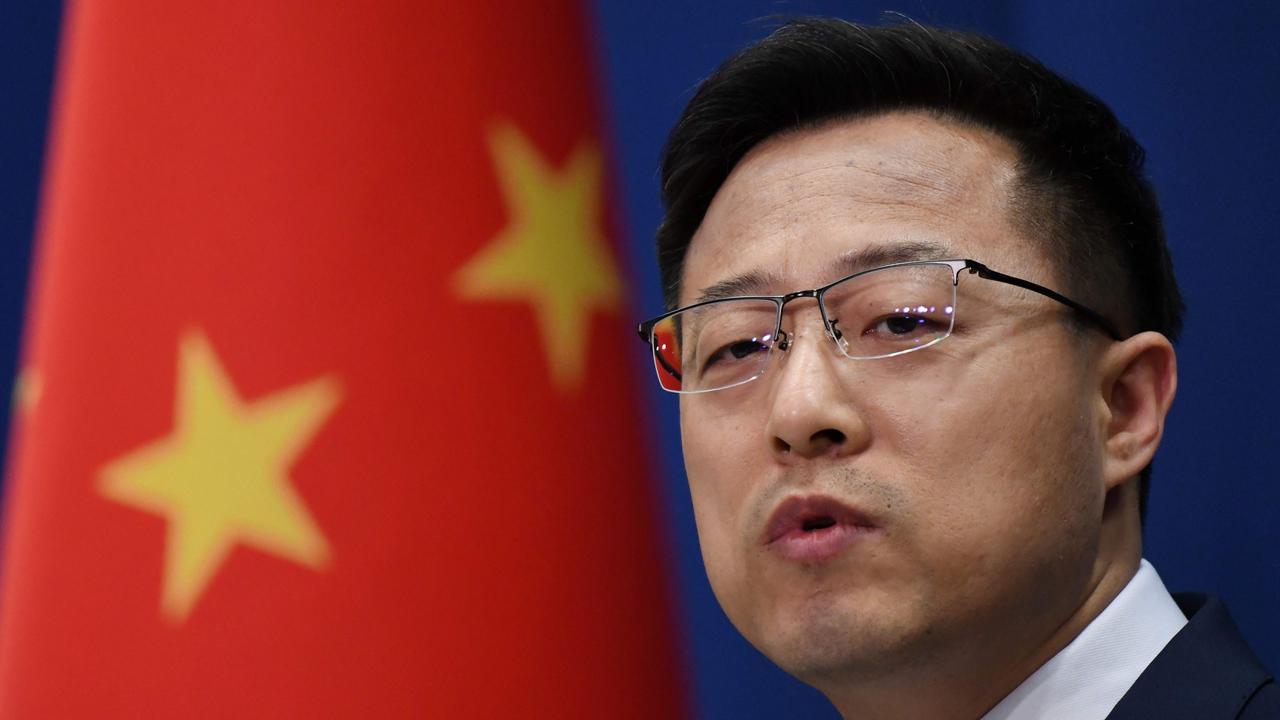
Within hours, his Foreign Ministry spokesperson Zhao Lijian was hyping the crisis.
He said Moscow was acting in response to “legitimate security concerns” over what was a “Cold War remnant”.
“As the world’s largest military alliance, NATO should abandon the outdated Cold War mentality and ideological bias, and do things that are conducive to upholding peace and stability.”
Meanwhile, Moscow began issuing demands.
President Vladimir Putin wants to divide Europe into spheres of influence. The desires of the nations caught between the two are irrelevant.
Beijing has publicly backed the move.
US Deputy Secretary of State Wendy Sherman had earlier stated Putin’s demands that the alliance reject any further applications for membership as “a non-starter”.
“We will not allow anyone to slam closed NATO’s open-door policy.”
Small East European nations such as Latvia, Lithuania and Belarus have been applying for NATO’s protection. It’s a response to the Russian leader’s efforts to bring the former Soviet Union states back under Moscow’s control. And long-neutral Sweden and Finland have been debating the move in light of Putin’s increasingly aggressive behaviour.
“China firmly opposes all kinds of small cliques,” Zhao said. Though he went on to describe Beijing’s growing relationship with Moscow as “mature, stable and resilient”.
Brothers in arms
Chairman Xi will greet President Putin at an official visit to the Winter Olympics opening ceremony.
Chinese UN representative Zhang Jun this week said Moscow had promised Beijing it would not upset the two-week event by invading Ukraine.
“Concerning the situation in Ukraine, we have heard from Russia that it is not their intention to launch any war,” he said.
The two have been at great pains to emphasise their growing relationship in recent years. That’s despite a long-term dispute over who owns Russia’s eastern provinces.
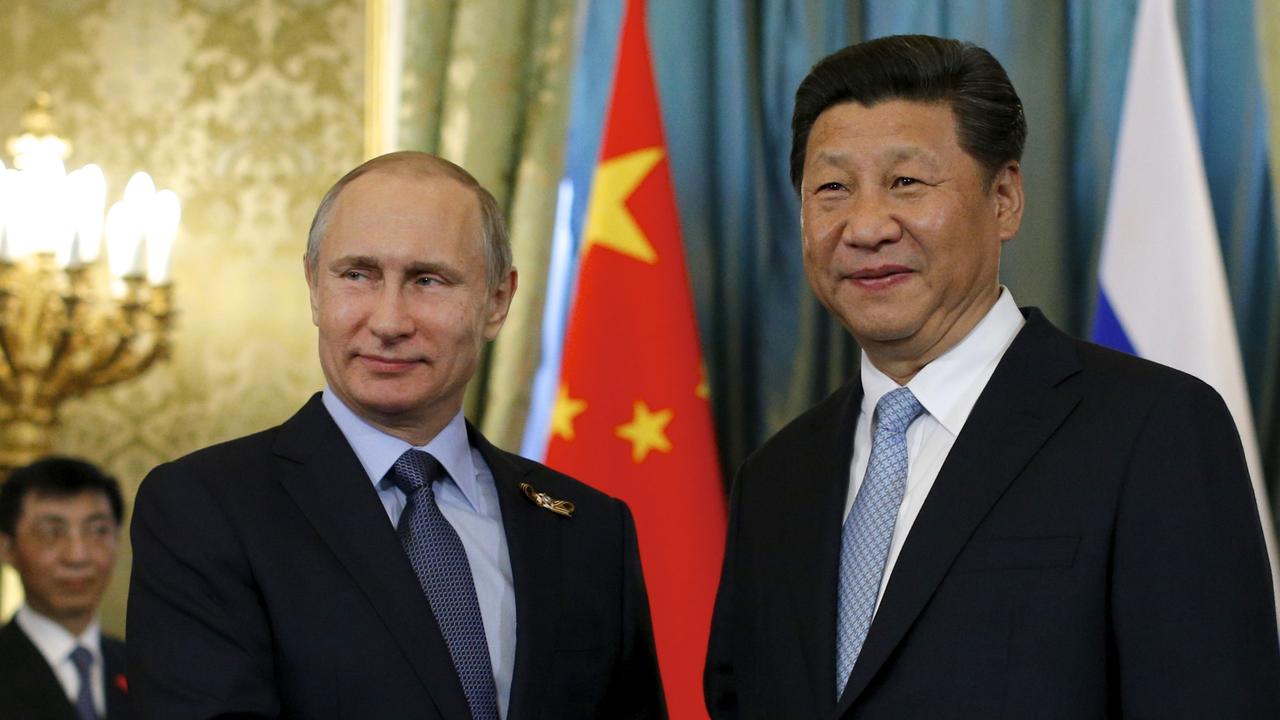
The relationship is yet to be formalised by an alliance. But recent large-scale combined military exercises demonstrate a desire for their forces to work together.
Most of Beijing’s support for Moscow has been in global posturing and propaganda contests.
It accuses Washington of being in decline. Of not knowing how to react to Russia and China’s rise.
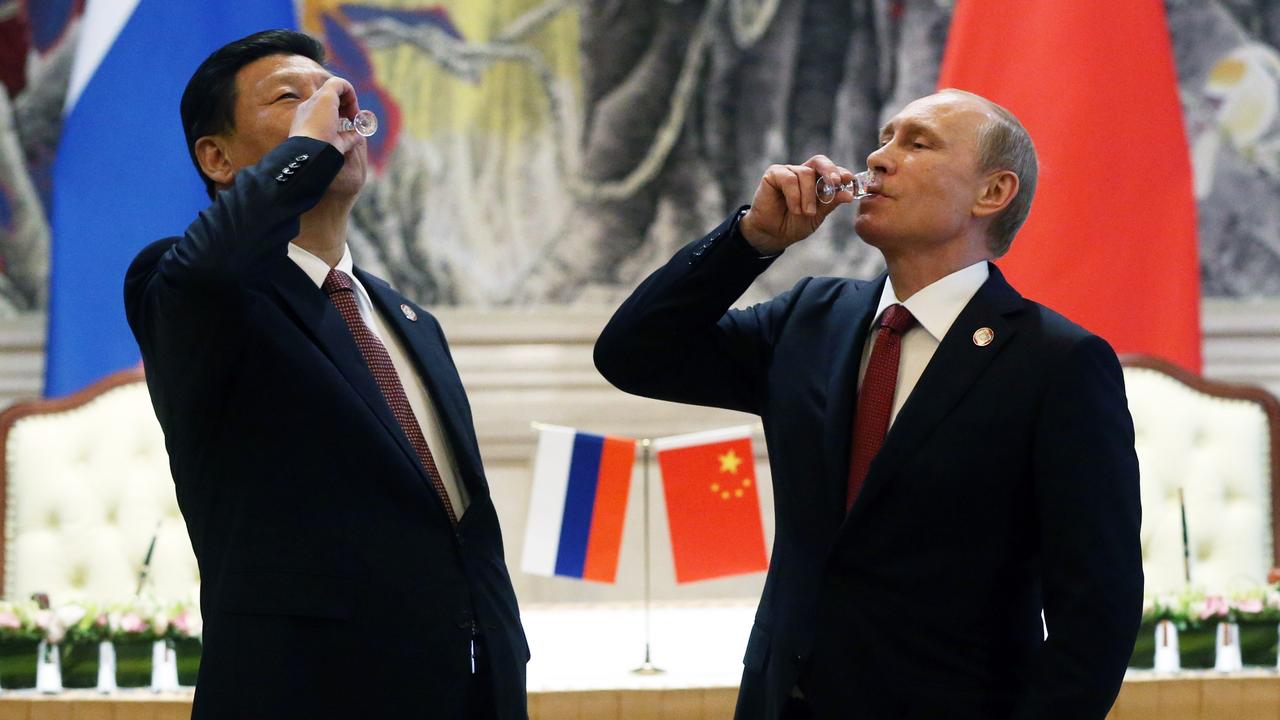
“Western elites have given their answer: Shifting the problem to the countries they do not like – China and Russia,” a Communist Party editorial in the Global Times accuses.
The excuse for authoritarianism is consistent.
“Russian and Chinese thinkers make the argument that different cultural traditions and ‘civilisations’ should be allowed to develop in different ways,” the editorial insists.
Mutual defence
And Russia’s insistence of historical ownership of Ukraine mirrors China’s ambitions over Taiwan.
“The entanglement between Ukrainians and Russians dates back to Tsarist Russia,” the Communist Party opinion piece reads. “If there is any similarity between the Ukraine tension and the Taiwan question, it is that they both have nothing to do with the world order.”
Ukraine and Taiwan, however, disagree. Not that their opinion matters to Russia and China.
Beijing argues the Western rules-based order is over. It says a more “democratic” process world order is in the offing.
“With China and Russia as the defence, the world should go on this path in the future – and the US and some of its pawns will try to erect barriers to impede urgently needed reforms.”
This pact will soon be put to the test.
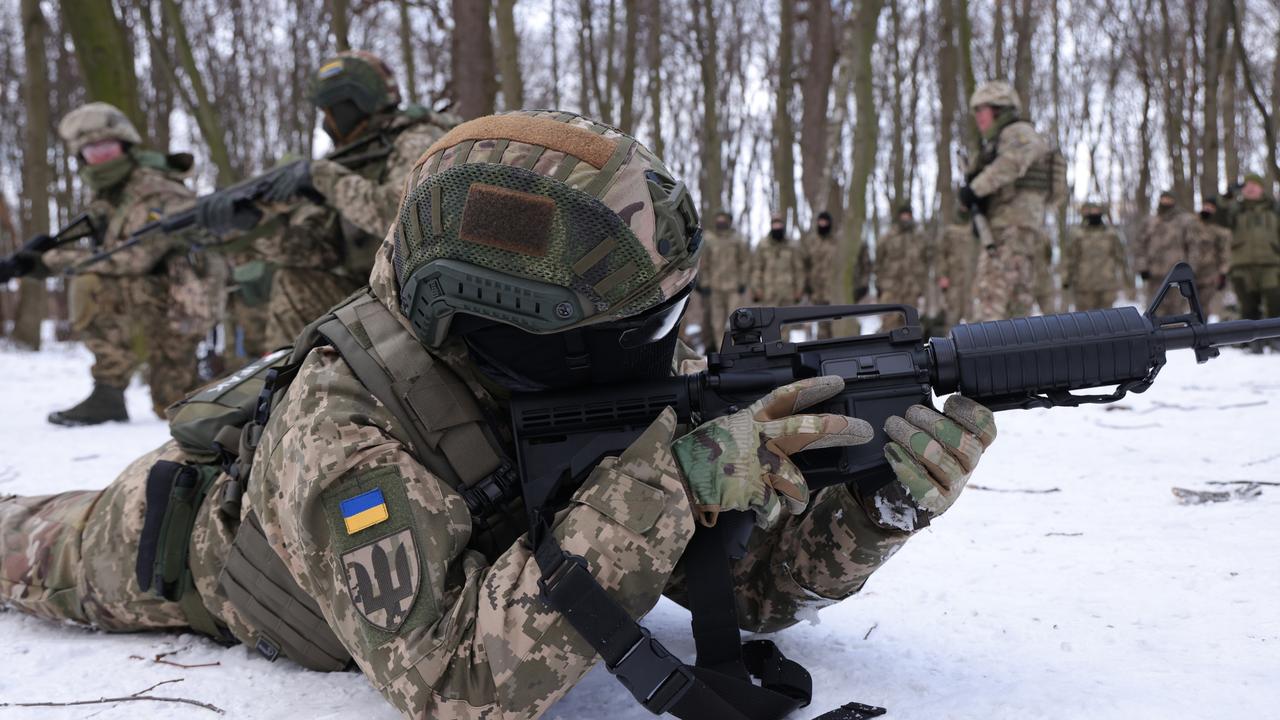
Joint naval exercises have just been completed in the Arabian Sea. The two forces practised anti-piracy operations and simulated seizures of ships.
“The exercise further enriched the connotation of the comprehensive strategic partnership of co-ordination between China and Russia in the new era, and improved the capabilities and level of the two militaries to jointly deal with maritime threats and maintain the safety of maritime strategic channels,” a Chinese Defence Ministry statement said.
A formal alliance isn’t yet on the cards. But both Beijing and Moscow describe their economic and political ties as a “buffer” against interference from Washington.
And that may blunt the impact of future sanctions.
Russian ambassador to China Andrey Denisov said the US dollar would no longer be the basis of economic activity between the two countries. Instead, each will trade directly in the other’s national currencies.
“There are so-called financial information transmission systems,” Mr Denisov said. “The one developed in Russia may well meet our demands at least in payment and settlement relations with Chinese financial and banking organisations.”
A game of thrones
China hasn’t always openly backed Russia’s aggression.
It abstained from supporting Moscow in a UN Security Council censure resolution after it invaded Ukraine’s Crimean Peninsula in 2014. It also refused to back the occupation of parts of Georgia in 2008.
And until now, Beijing’s relationship with Kiev has been cordial.
Earlier this month, Chairman Xi Jinping congratulated President Volodymyr Zelensky on 30 years of official ties. Xi emphasised the “development of China-Ukraine strategic partnership”.
But Ukraine’s independence is at the heart of the unfolding crisis.
Moscow has demanded the NATO membership of former Soviet Union nations be revoked. It wants reassurances that Ukraine will never be allowed to join.
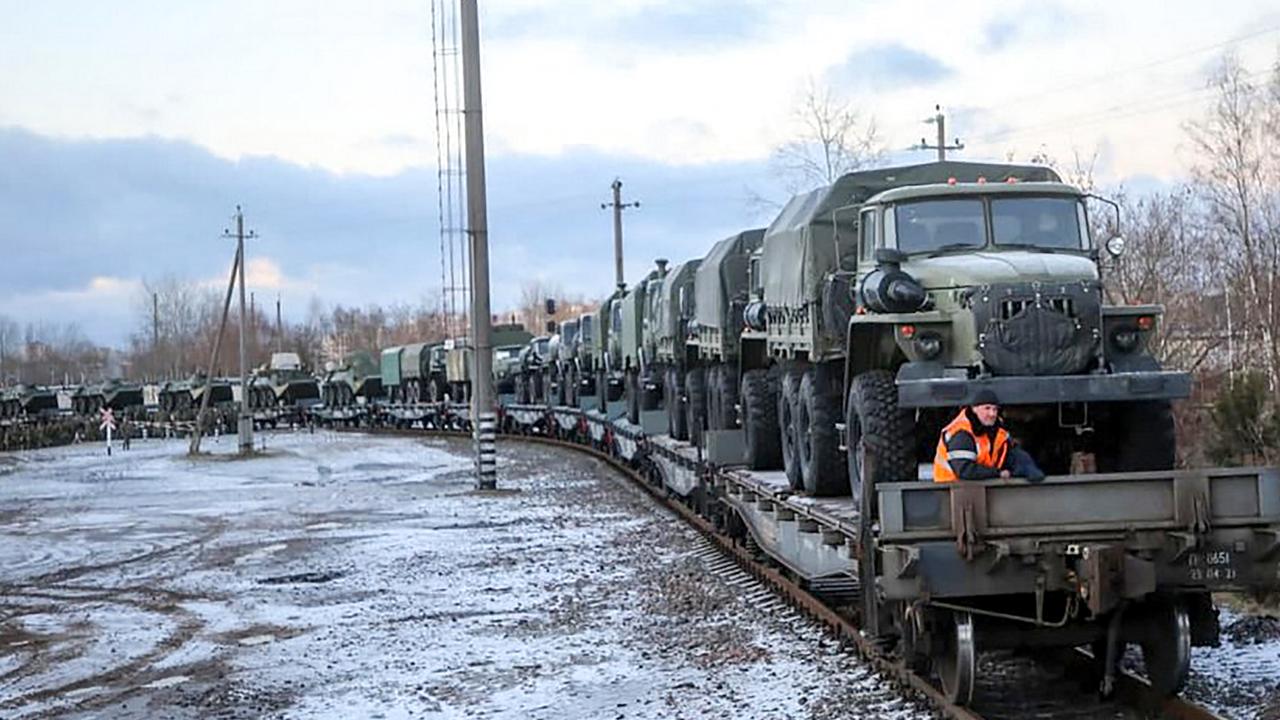
At stake is the mutual defence pact that is the heart of the NATO alliance.
All nations agree to come to the aid of any member that is attacked.
And that has blunted Putin’s ambitions to restore Russia’s empire.
So, it’s begun securing its relationship with China.
“There is no doubt that the current situation in the world fosters further strengthening of the strategic partnership between Moscow and Beijing,” Moscow’s ambassador to Washington Anatoly Antonov said. “But unlike the US and its NATO allies, we have no geopolitical plans and aims against any sovereign country.”
More Coverage
Meanwhile, Washington is increasingly convinced Moscow will act soon.
“I have no idea whether he’s made the ultimate decision,” said Deputy Secretary of State Wendy Sherman, “but we certainly see every indication that he is going to use military force sometime perhaps [between] now and the middle of February.”
Jamie Seidel is a freelance writer | @JamieSeidel






